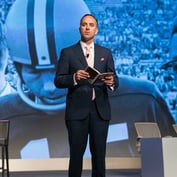The volume of retirement assets rolling out of defined contribution plans has gotten the Department of Labor’s ERISA Advisory Committee’s attention.
IRAs, along with other investment vehicles that fall outside the jurisdiction of ERISA’s oversight, are growing more popular as boomers retire and move their retirement savings out of employer-sponsored plans.
In response, the ERISA Advisory Council this week said it plans to examine some of “the factors leading participants to leave their assets in or move them out of a plan.”
Its inquiry also will look into the habits of retirees moving out of defined benefit plans. IRAs often impose fees that are higher than those seen in 401(k) plans.
The council’s notice suggests that the Department of Labor wants to know whether the existing regulatory structure governing employer-sponsored plans is affecting how retirement assets are rolled over.
As part of its work, fees on assets, the range of investment options offered to enrollees, the ultimate extent of investors’ personal control, and the consequences of sponsors’ fiduciary obligations on investment decisions will all be explored, according to a statement from the Advisory Council.
The council also wants to better understand how existing regulations affect asset movements when workers change jobs, and, ultimately, how the choice to liquidate employer-sponsored retirement plans is weighed by individuals.








 July 14, 2014 at 10:32 AM
July 14, 2014 at 10:32 AM










